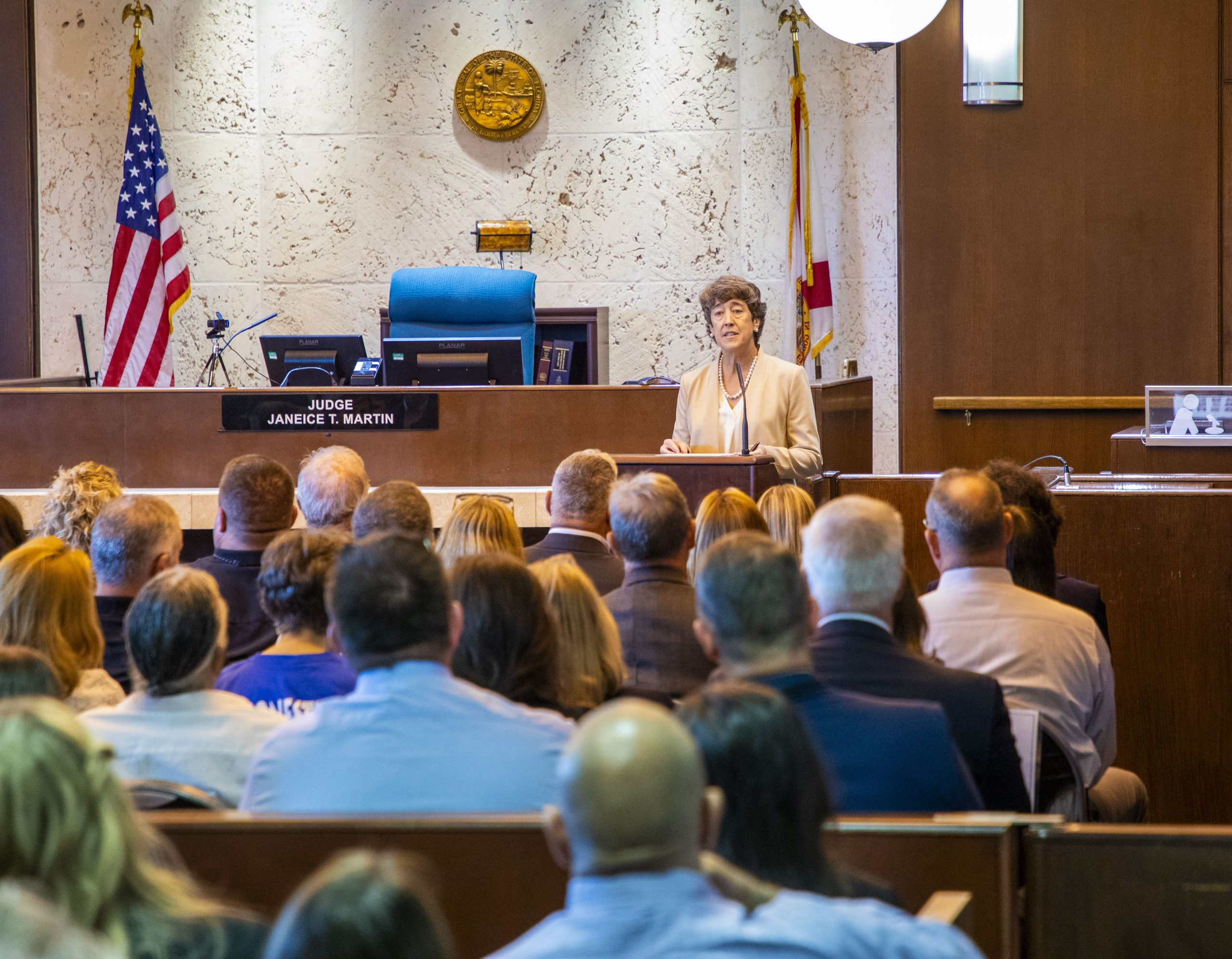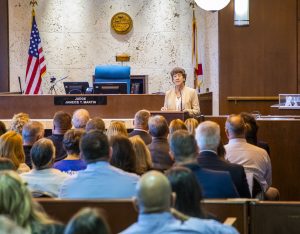 Guest Commentary from Judge Janeice Martin
Guest Commentary from Judge Janeice Martin
On September 17, the 20th Judicial Circuit celebrated the 25th Anniversary of the Collier County Adult Felony Drug Court in Courtroom 2A of the Collier County Courthouse. Former Drug Court Judges William Blackwell and Christine Greider spoke at the event, and several graduates of the program shared their experiences and inspiring stories of overcoming addiction and changing for the better.
Now, you might be wondering how the Drug Court works. In Collier, we only include persons with felony cases, and who are “post-adjudication,” which means all have pled to their charges and been sentenced to Drug Court (18-36 months, typically). It’s a voluntary program, but once they “plea in”, they are obligated to a rigorous program of treatment and accountability that many persons simply aren’t willing to attempt. Our clients get significant help and support to assist them in complying with intensive treatment, testing, and reporting, all while maintaining life in the community – having jobs, paying rent, raising kids, etc. Our clients will quickly agree that doing time is MUCH easier than getting at the root of the issues that have landed them in jails and institutions, often for many years, and turning their lives around.
A national study found that for every $1 that gets invested into a drug court for things like treatment and case management support, an average of $3.33 is saved in hard justice costs (incarceration, judge time, prosecutor time, new arrests, and the like). If we shift to soft costs (e.g., children in foster care, lost productivity, unpaid ER visits, crisis unit admissions, and the like), that number shoots up to $27 returned for every $1 invested.
We see this play out daily in our court, as parents regain custody of their children (and aim to break the cycle that perhaps their parents’ addiction set in motion), our graduates help support new participants, our folks start their own businesses, and become job creators, rather than job drainers. Our graduates take the message of recovery into our jail and help motivate prospective participants to have the courage to join us to try to turn their lives around.
However, I must confess that statistics in this field are pretty hard to track reliably, and they can also be deceptive. For example, recidivism data is limited by (1) our ability to access state and federal databases that track that and (2) our ability to distinguish a meaningful re-offense from something that bears no relation to the person’s recovery success and/or may ultimately be dismissed. We can have a successful graduate who never reoffends but subsequently dies of an overdose. At the same time, we can have a former participant who did not graduate but who never again uses drugs or reoffends. Statistically, the former goes down as a win, the latter as a loss.
Even with those caveats, I can report that we graduate a bit over 60% of the men and women who opt-in to our Drug Court. This is in line with national averages. Of those who don’t graduate with us, the vast majority are persons whose treatment needs vastly outweigh their legal jeopardy, and it becomes a matter of practicality on their part that they tap out and “just do their time.”
Our most recent study puts our recidivism at about 30%, which (depending on which source you consult) is less than half the rate that non-treatment, traditional justice avenues typically produce. Interestingly, even for persons who do not fully complete our program and “graduate,” we see a nearly equal reduction in that cohort’s recidivism, which is a very encouraging fact.
We only have reliable data from 2013 and have counted 226 graduates since then. We easily have over 300 total, and we were happy to see a good number of our alumni attend on the 17th for the 25th Anniversary Recognition.

